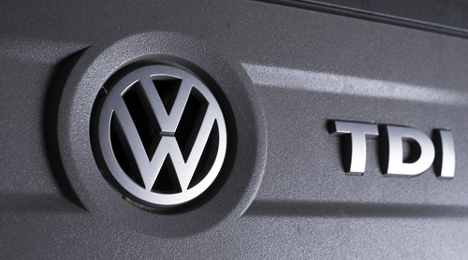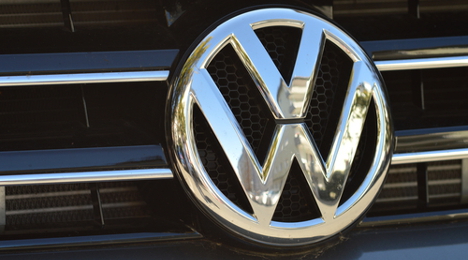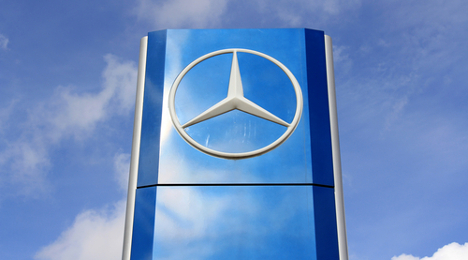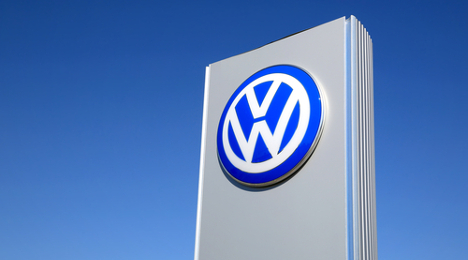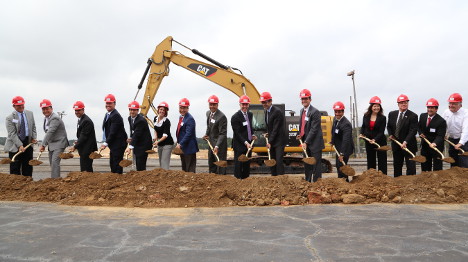Dealers: do you have customers you would like to notify about their vehicle’s recall status, but you’re apprehensive to contact them due to being on the National Do Not Call Registry?
Rest assured: NADA Regulatory Affairs reminds dealers that the “do-not-call” rules do not prohibit dealers from calling consumers about vehicle recalls. As long as the defect repair work involves no cost to the customer, at least.
According to NADA, itself citing the Federal Communications Commission’s ruling from 2005, “calls that encourage the purchase of other goods and service ‘will be deemed a prohibited telephone solicitation.’”
NADA noted that this specific clarification only applies to the National Do-Not-Call rules and is not applicable to the separate restrictions of the Telephone Consumer Protection Act (TCPA) for text messages, pre-recorded calls, calls made to cellphones, or calls made using auto-dialers.
The association urges dealers to consult their legal counsel before making a decision regarding a recall-notification telephone strategy for its affected customers.
Strong dealer-consumer relationships increase recall repair rates
Anita Lienert, a correspondent for Edmunds.com, also shared in a post on the Edmunds site the results of a recent survey conducted by Public Opinion Strategies, on behalf of Auto Alliance and the Association of Global Automakers, suggesting that consumers who have established a relationship with a dealer participate in recalls more often than those who have not established that type of relationship.
Even though time is the only cost to the consumer for most recall repairs, the research sought to find out why roughly 25 percent of owners of recalled vehicles never complete the free repair of their vehicles.
According to the Edmunds post, one key finding from the survey found that many consumers are doing their own “risk assessments” when they receive a recall notice, deciding whether or not it’s worth their time to take their vehicle in for the remedies.
A statement from the Auto Alliance last week said that, “Many survey respondents showed a reduced likelihood to repair a recalled vehicle if they perceived the recall to be ‘low’ or ‘moderate’ risk, saying it seemed to be ‘no big deal.’ Used vehicle owners are less likely to be motivated to respond to recall communications, even when they are aware of a recall on their vehicle.”
According to the survey, consumers are more likely to heed recall repair notifications if the severity of the recall is high, if they are especially reminded that it is free, or if a reminder of open recalls is provided in their insurance renewal notices.
Dealers: Have you found any particularly potent way to convince your customers to bring their vehicles in for recall repairs? Let us know in the comments below or gives us a shout via social media via the links on the left of this page.
Matthias Mueller, Volkswagen AG’s chief executive officer, rallied the OEM's workforce on Tuesday, announcing to a group of over 20,000 employees at VW’s Wolfsburg, Germany plant that a plan is in the works to remedy the company’s recent diesel emissions scandal.
With a focus on regaining trust and transparency, a news release from the automaker said Mueller told his employees, referring to the group’s various international badges, “in this situation, where we are dealing with four brands and many model variants, care is even more important than speed.”
According to Mueller, the remedies for its customers, whom he says should hear from the company “over the coming days” if their vehicles are affected, have currently been drawn up and will “shortly” be presented to “responsible authorities.”
“In many instances a software update will be sufficient,” Mueller said. “Some vehicles, however, will also require hardware modifications. We will keep our customers constantly informed about the measures and arrange workshop appointments.”
How will fixes affect VW’s reputation?
Mark Dotson, a professor at the Western Michigan University Cooley Law School, said in an analysis from the unversity last week that beyond legal issues, VW’s reputation will rely heavily on how they fix the emission issue.
“Depending on Volkswagen’s fix, assuming the company can remove the emission problem with a modification, then exposure and liability will turn to how satisfied the customers are with the vehicle,” Dotson said. “This will be a test of consumer confidence with the company and its products.
“No doubt there will be class action lawsuits brought on by consumers emphasizing the fraud,” Dotson continued. “Damages on this could range from costs associated with additional emissions testing, decreased value of the vehicle due to the perception that the cars are environmentally unfit, to punitive damages because of the fraud. If there is one area of law, even though the loss here is economic in nature, where courts are most willing to impose penalties, whether by a jury’s determination or pursuant to a statutory consumer protection scheme, it is when it comes to fraud.”
While VW’s diesel range is much simpler in the United States than its counterparts across the pond, it’s still up in the air whether VW will take the less expensive route, employing a software adjustment that will cause the affected TDI engines to meet EPA emissions requirements at the expense of fuel economy and engine performance, or a more costly route by physically modifying the engines with something like urea injection that would help reduce NOx emissions.
“The software change is the least costly option for Volkswagen at this point, and has the potential to affect performance and fuel economy more than the more expensive route of adding urea injection,” noted Matt DeLorenzo, managing editor at KBB.com, in an analysis last week. “I find the use of the word refit interesting, as it implies a hardware change, whereas I think they will be updating the engine control module software to make the engine run in the compliant test mode all the time. The other question is whether or not the refit includes any changes to the catalyst itself to make it more robust.”
According to comments from Fitch Ratings last week, taking the less expensive route could result in much lower resale values and bolster owners’ civil cases against VW and extend the company’s reputational damage. While recalls have historically only affected used-car values in the U.S. for short periods of time, VW’s situation is unique: according to Fitch, “It remains to be seen whether the impact on used-car values could be greater because VW’s actions are being thought of as deceptive.”
Please continue to follow further iterations of Auto Remarketing in both print and digital editions as we continue to follow the political, financial and reputational impact of the developing situation with Volkswagen.
How much is the Volkswagen diesel engine emission controversy impacting its certified pre-owned program?
It may be too early in the process to tell.
On an EPA investigation update section of the Volkswagen of America website, VW said: "Right now, we’ve put a stop sale on all 2.0L 4-cylinder TDI equipped vehicles (new and certified pre-owned), and we’re working with the responsible agencies to obtain approval for the MY16 2.0L TDI vehicles. We are working very hard to get our 4-cylinder TDI business re-started as soon as possible."
As far as the latest CPO numbers, year-to-date figures were still up slightly (1.8 percent) through nine months, and monthly CPO sales in September were down 16.8 percent year-over-year.
But news regarding VW’s issues was public knowledge for only the last 13 days of September, so again, perhaps it’s too early to gauge the overall impact to the automaker’s certified pre-owned program.
At any rate, for any manufacturer’s CPO program, trust and perceived quality are paramount. So, where does VW go from here?
At the time of this writing, representatives from Volkswagen were not available for comment.
However, Alec Gutierrez, Kelley Blue Book’s senior market analyst of automotive insights, shared his thoughts on VW’s CPO program, especially with sales of its TDI (diesel) models affected by the news.
“I think there’s obviously going to be challenges there, especially as it relates to certified pre-owned TDIs,” Gutierrez said in a KBB and Autotrader conference call with reporters last week. “And we know that makes up a pretty good chunk of sales overall for Jetta, and certainly I think it makes up more than 80 percent of Jetta SportWagen sales. I think those models, in particular, are going to be in for a tough time until we know what the impact of the recall is going to be.”
Pricing impact?
Looking at the Cars.com national inventory price figures from just before the VW news broke on Sept. 18 compared to average asking prices at the end of September, the company found a few interesting price changes in TDI listings.
Noting that the prices were set by private sellers and not dealers, just about every model of VW Jetta, Jetta SportWagen, Golf, Beetle and Passat – all VW models that offer both diesel- and gas-powered variants – suffered an average price hit. To be exact, of the 48 different used models investigated, 44 of the models saw average price drops in the 13-day span (of the 24 TDI variants, 22 saw price drops).
Michelle Krebs, senior analyst at Autotrader, had her team investigate the issue on their own site to see if people were listing VW diesel models for cheaper at an attempt to ditch the models.
“At the moment, we saw that private sellers are generally sticking with their prices on the VW diesels that are listed on our site,” Krebs said in the aforementioned call with Gutierrez. “They’ve dropped a little bit, specifically on VW Beetle diesel and the Audi A3 diesel. It looks like what private sellers are trying to do is get as much money as they can. I think what will be interesting to watch is do we see more listings of people wanting to get out of those vehicles? That is something that we’re going to be paying a lot of attention to.”
Gutierrez doesn’t think that values will drop too dramatically.
“I think one thing to consider, too, especially as it relates to the used-car market, is that any given car is only as good as its next monthly price substitute,” Gutierrez said. “I think there is a floor in terms of what’s going to happen with Volkswagen’s values, assuming that they can overcome some of the perception issues that obviously they’re going to have in the near term.
“But ultimately, if it gets to a point where you’re choosing between a relatively full-equipped Jetta or you’re looking at, say, a Corolla or Civic or something else, I don’t think the Jetta’s ever going to drop to a point where it’s a $3,000 priced discount versus a vehicle that offers similar performance and similar utility,” Gutierrez added. “Again, I think there’s always been an expectation that values are going to drop 20 or 25 percent or some huge number, but there is a floor based on competition.”
As Auto Remarketing shared this week, recent data from Kelley Blue Book and Autotrader indicated that VW consumers are trying to get more information about what their vehicle might still be worth, as well.
String Automotive announced new agreements with several large dealer groups on Monday while also highlighting the new local-market focused upgrade to its Dealer Positioning System.
String has entered new enterprise-level relationships with the March Hodge Automotive Group, Feldman Automotive and All Star Automotive Group.
The company’s latest release of its Dealer Positioning System, or DPS, includes a local-market area view to help market within that range. The metro-market area view includes enhancements that aim to help traditional budgets and market share growth plans for both Tier 2 and Tier 3 budgets.
“Though our team had great respect for our vendors, we began placing a great deal of importance on believing only our own metrics for success,” said Kelly Deets, the digital marketing director at Your Auto Giant of New Port Richey, Fla. “At first, the only place we could find ROI-related metrics was through the reports that we received from our digital marketing vendors. After installing the DPS, we are able calculate our wins and loss across our entire advertising budget, customizing the plan based on each store’s best opportunity for growth.”
String also reported a 206-percent growth in year-over-year subscription sales in September for its dealership intelligence platform.
“With the ever-growing technological and digital marketing-related offerings in the vendor space, automotive marketers are under increasing pressure to understand what’s working and what’s not,” said Ken Kolodziej, String’s chief executive officer. “Our growth speaks to the fact that we answer that question for marketing director and VP of operations roles within the mid-major and regional automotive groups.
“With monthly budgets north of $100,000, the return associated with hyper-focused, market-share-driven advertising is too substantial for them to ignore.”
Continuing the theme of digital proliferation in the automotive industry, The Appraisal Lane announced Wednesday that the Gettel Automotive Group in Florida is the newest dealer group to put the company’s trade and communications platform solutions to task.
Gettel has rolled out the The Appraisal Lane system across all 11 of its dealerships in the Sarasota, Bradenton, Gainesville, and Ocala markets of the Sunshine State.
With TAL’s solution, Gettel’s employees can now post pre-owned inventory and receive quick cash offers from TAL’s network of appraisers.
“We’re extremely pleased to support Gettel Automotive Group’s daily business operations, and we look forward to improving its business and enhancing its consumer offerings,” said Jeff Risner, TAL’s co-founder and chief executive officer. “Until now, the wholesale used-car appraisal and acquisition process was inefficient. The Appraisal Lane is transforming this process by providing dealers like Gettel with the most accurate used-car offers, quickly and easily, in a fully optimized mobile platform that makes it easy for them to conduct business virtually anywhere, at any time.”
Kurt Fisher, Gettel’s pre-owned vehicle operations manager, says he looks forward to the future business opportunities that TAL brings to his business in the form of increased sales and improved customer service.
“There’s a confidence level and validation that comes with using The Appraisal Lane platform to put the most accurate numbers on our used-car inventory, and on hot trades when the customer is physically sitting at the sales desk ready to transact,” Fisher said. “In addition to accurately valuing our full spectrum of used inventory, and getting cash offers in the process, The Appraisal Lane enables us to move aged inventory much faster than before. It has been a great tool for us so far.”
For those unfamiliar with The Appraisal Lane’s offerings, at its core, dealers and auctions can utilize TAL in three different ways:
- Submit vehicles for appraisal. Whether those are pending trade-ins, stubborn vehicles on the lot that are proving to be a tough sell, cars that didn’t sell on the auction block, or anything in between. Depending on the situation, TAL will respond with a cash offer within 10 to 15 minutes. Many times, those cash offers stem from outside buyers, which typically include dealer or auction partners.
- Buying cars. TAL has partnerships with many dealerships and a handful of auctions, some of which only utilize TAL services to buy inventory.
- White label customers. Dealerships or dealer groups seeking to utilize the TAL platform to power their own internal trade network can license a solution from TAL.
TAL is optimized for mobile use – appraisal submissions, purchase offers and communications between dealers, appraisers and wholesale buyers can be managed completely from a phone, tablet or computer. It tracks sales info, like costs, transportation, and profit and loss information, along with fulfillment channels through which used-vehicles are sold, including direct-to-dealer, physical auctions and online auctions.
That’s just the tip of the iceberg — stay tuned to upcoming digital and print editions of Auto Remarketing as we take an up-close and personal look at some of the other digital pioneers in the industry.
The relatively new Momentum Auto Group recently announced the appointment of its new chief operating officer.
Bringing nearly 33 years of experience to the role is George Athan, who is now responsible for directing future business management and revenue growth as well as acquisition strategies to grow and develop future opportunities.
Athan's background includes time with AutoNation, as well as DCH Auto Group and ELEAD1ONE.
Athan’s further responsibilities now include establishing strategic business goals, increasing targeted performance, as well as cultivate manufacturer and financial partner relationships.
“I couldn’t be more pleased that George Athan has joined our team,” said Rahim Hassanally, the group’s president. “George has the national-level experience and knowledge to help take Momentum Auto Group to the next level. As we continue to build on what we have already achieved in nine years, George and the executive team will provide the stability and efficiencies that our operations and customers deserve.”
Athan also commented that he is excited to join the “progressive” team at Momentum.
“Momentum is postured to take advantage of growth opportunities and I look forward to being a part of that growth and continue our ‘Momentum.’”
For more information on the auto group, visit its site here.
Group 1 Automotive announced Monday its acquisition of a Mercedes-Benz store in Georgetown, Texas.
Part of the greater Austin metropolitan area, the dealership will continue to operate as Mercedes-Benz of Georgetown.
The store is expected to generate $100 million in estimated annual revenues.
“We are delighted to strengthen our relationship with Mercedes-Benz and further expand our scale in the Austin metropolitan market, which leads the nation as one of America’s fastest-growing cities,” said Earl Hesterberg, Group 1’s president and chief executive officer.
Mercedes-Benz of Georgetown also features a Mercedes-Benz Sprinter commercial vehicle franchise as well as a Smart car franchise.
One item on the minds of many VW dealers in the United States going into Friday’s board meeting of Volkswagen AG was whether or not the rumors that current U.S. VW chief executive officer Michael Horn would be leaving the company were true.
As it turns out, that’s not the case, as VW announced that the company will be restructuring in the U.S., with activities in the U.S., Mexico and Canada being consolidated as one new North American region with Winfried Vahland, formerly the chairman of the board of directors at Skoda, as the leader of the region. By taking on this role, Vahland becomes a member of the VW brand board of management.
At this time, Horn will remain as the president and chief executive officer of Volkswagen Group of America.
As for the global operations, Matthias Mueller, the chairman of Porsche AG, has been named the new CEO of Volkswagen AG, replacing former CEO Martin Winterkorn, who resigned Wednesday.
"My most urgent task is to win back trust for the Volkswagen Group – by leaving no stone unturned and with maximum transparency, as well as drawing the right conclusions from the current situation,” Mueller said. “Under my leadership, Volkswagen will do everything it can to develop and implement the most stringent compliance and governance standards in our industry. If we manage to achieve that then the Volkswagen Group with its innovative strength, its strong brands and above all its competent and highly motivated team has the opportunity to emerge from this crisis stronger than before."
In an announcement on Friday, VW also stated that its Supervisory Board recommended the immediate suspension of several of its employees during an investigation it has authorized its chairman to mandage for German and U.S. lawyers to "objectively investigate and fully clarify the manipulation of emissions data of diesel engines." The names and positions of the employees were not released.
"The test manipulations are a moral and political disaster for Volkswagen,” said Berthold Huber, the deputy chairman of the Supervisory Board. “The unlawful behavior of engineers and technicians involved in engine development shocked Volkswagen just as much as it shocked the public. We can only apologize and ask our customers, the public, the authorities and our investors to give us a chance to make amends."
The company also announced that Christian Klingler, formerly a member of the board of management of Volkswagen Aktiengesellschaft with responsibility for sales and marketing and a member of the VW brand board of management with the same responsibilities, is leaving the company with immediate effect due to “long-term planned structural changes and as a result of difference with regard to business strategy” unrelated to recent events.
Juergen Stackmann, previously chairman of SEAT, will take over Klingler’s role as member of the VW brand board of management. Stackmann is succeeded by Luca de Meo, currently Audi AG board of management member for sales and marketing. These personnel changes will be effective as of October 1.
For the full listing of VW’s structural changes, you can check them out on the VW site here.
CarMax president and chief executive officer Tom Folliard likes how the company is positioned to take advantage of the swelling projection of off-lease vehicles expected to fill the auction lanes next year and beyond.
During the company’s most recent conference call, Folliard was asked to compare how CarMax will leverage this chance as compared to a decade ago when the off-lease vehicle market jumped by these expected levels. To recap, Used Car Week featured speaker Joe Derkos, director of the Power Information Network, a division of J.D. Power and Associates, placed his expectations of around an 800,000-unit increase in lease maturity wholesale volume in 2016.
“In terms of our capabilities, we are much more organized today than we were 10 years ago,” Folliard said. “We’re much more analytical about the way we approach car buying at the auction, and I think we’re in a better position today to optimize the inventory that we acquire at the auction because of all the analytics that we’ve put into it and all the digital capabilities that we’ve given our buyers.
“Our buyers are now all using tablets at the auctions,” he continued. “We’re tracking every single car that a buyer at CarMax looks at while at the auction and deciding whether or not that car is worthy. Then the next time a buyer goes to the auction, they don’t have to look at that same car and we’re saving an enormous amount of time in evaluating cars at the auction.
“We have all the auctions on a program where the CarMax buyers are buying under one kind of generic card, and we can analytically decide where those cars go later,” Folliard continued.
That strategy for acquiring inventory evidently is appealing to CarMax buyers. Company dealerships turned 156,516 units during Q2 and 321,026 units at the halfway point of its current fiscal year. Both figures represented a 9.2-percent gain year-over-year.
And it appears CarMax will continue to have buyers in the lanes securing inventory for the company’s network of dealerships, which is expected to expand by 14 during its current fiscal year and by 13 to 16 stores in each of the following two fiscal years.
“If you back up 10 or 15 years, we used to buy on a store-by-store basis, so I’m really pleased with the progress we’ve made in our ability to analyze and purchase inventory,” Folliard said.
“I really do think that leasing provides a more organized way because you’ll see a lot of the big leasing companies will run hundreds and hundreds of cars a week on a very regular basis at the auction,” he continued. “It’s pretty predictable and we have the ability to look at that inventory in advance and decide which ones we are or are not going to bid on.”
Following AutoNation’s strategy
Earlier this month, AutoNation made a major procedure change, announcing a policy not to sell, lease or wholesale any new or used vehicle that has an open safety recall.
The dealer group indicated this policy will apply to each one of AutoNation's 293 vehicle franchises across the United States and stands as a “confirmation of the company's commitment to delivering a peerless customer experience.”
In light of CarMax having the same kind of footprint, Wall Street observers asked Folliard if a similar pivot was in the works regarding recalled units. Folliard explained how CarMax is in the different position than AutoNation, which has a wide array of franchised stores to handle recall repairs. Meanwhile, CarMax only has two franchised dealerships in its entire portfolio, a pair of Toyota rooftops.
So as large as CarMax is, Folliard reiterated that it has to get recall work completed just like the smallest independent dealer — send that vehicle to the appropriate franchised store.
“Well, it is a concern. We’ve talked about it at length,” Folliard said about recalled vehicles. “It’s something that we’re always trying to do what’s the most transparent thing that we can do for our customers.”
“We think the most important thing is to make sure that customers are fully informed of whether or not there’s an open recall on the car and also how important it is to register on a manufacturer’s website. We may sell them a car and a week later a recall may come out, and if they haven’t registered with the manufacturer, then they won’t ever know about that,” he continued.
“Every customer that buys a car at CarMax is made aware in several different points of the transaction about recalls,” Folliard went on to say. “We have a direct link on our website to the NHTSA database. It automatically populates the VIN for the customer so they can see exactly what’s going on with that individual car, and then at the point of sale our sales consultants are walking through with the customer exactly what I just said — whether or not the call has a open recall, and the importance of registering with the manufacturer on their website so they can be notified of recalls going forward.”
CarMax hiring for more than 2,000 positions
In other company news following its Q2 financial performance update, CarMax indicated that it is recruiting for more than 2,000 positions in locations across the country. Officials mentioned the majority of open positions are in service operations (detailers, experienced technicians) and sales, with additional positions in purchasing and the business office. Positions range from full and part-time, with day and evening shifts available.
“Behind every CarMax stress-free customer experience is a dedicated, hard-working team of associates,” Folliard said. “We place a strong focus on providing developmental opportunities for everyone in the company, and on taking care of our associates by offering a healthy work-life balance and excellent benefits.”
Some of the areas with a large number of service job openings include:
— Austin, Fort Worth and Houston, Texas
— Laurel, Md.
— Memphis, Tenn.
— Greensboro, N.C.
— Lancaster, Pa.
— Parker, Colo.
— Louisville, Ky.
— Newark, N.J.
In addition, CarMax is currently hiring for its first Boston-area stores in Danvers, Mass., and Norwood, Mass., which will open in December.
CarMax offers a comprehensive benefits package including health coverage, paid time off, insurance and disability, and retirement options for full-time associates. The company also offers competitive pay and promotes a diverse work environment. Stores are equipped with climate controlled, state-of-the-art service bays with quality equipment. Employees receive discounts on vehicle purchases and other services.
“Our associates experience a workplace full of opportunities for skill development, award-winning training, advancement, and recognition for performance,” said Tracey Shoemaker, director of talent acquisition for CarMax.
“Team-oriented, dependable candidates who are ready to join the CarMax family should apply now,” Shoemaker continued.
Asbury Automotive Group announced this week it is expanding its Nalley brand with a new Nissan and an Infiniti store in Atlanta.
The company recently held a groundbreaking ceremony, which included attendees such as Craig Monaghan, president and chief executive officer, and David Hult, chief operating officer of Asbury Automotive; Leon Dorssers, vice president of dealer network development at Nissan North America; and David Bushe, area general manager and Terry Hoffman, dealer operations manager at Infiniti Americas.
The stores, which will feature two five-story car display towers, will be in a high-visibility area, the company said, off Interstate 285, near I-85. They are set to open their doors in mid-2016. According to Asbury’s website, the two new stores will bring the Nalley Automotive Group’s store count to 19.
"We are excited to expand and strengthen Nalley's presence in the Atlanta community by bringing jobs to the area," said Monaghan. "I believe customers are going to enjoy the convenience of the new location with the added features, inventory and service the new stores will have to offer."
For the two new stores, Asbury Automotive purchased 20 acres of a 165-acre former General Motors site.
The Nissan dealership will be about 72,000 square feet, while the Infiniti dealership is expected to be approximately 50,000 square feet. The dealerships will provide more than 1,200 parking spaces and 10 electric vehicle charging stations.
"This is certainly a one-of-a-kind project for Asbury, due to its scope, importance and uniqueness," said Hult. "The economic impact this project will have on the area is particularly significant. These dealerships will also be the largest Nissan and Infiniti stores in the metro Atlanta area."


